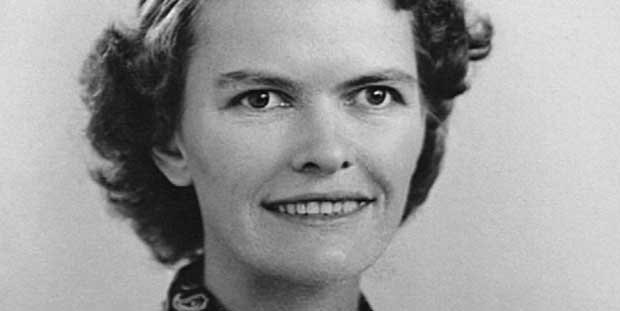by Lauren Rose, Associate Professor of Mathematics at Bard College, Chair-Elect of the MAA Special Interest Group on Math Circles for Students and Teachers
I had known about the Julia Robinson Mathematics Festival (JRMF) for many years and planned to host a festival at Bard College at some point. A colleague invited me to run a Rubik’s Cube activity at a May 2020 Festival in Connecticut. I was greatly looking forward to the event, but the pandemic hit and it was cancelled.
Then in May I saw a post that JRMF was looking for volunteers for their monthly online webinars. I jumped at the chance, and joined the teacher’s breakout room at my first webinar. We were working on Sum Free Ladybugs. At first I thought this was just a cute problem for middle schoolers, but as we played around with the problem, I discovered that there was deep mathematics underlying the activity, yet it was also accessible to anyone. They call these low-floor, high-ceiling problems. I finally had a name for the kinds of activities I’ve been trying to develop over the past 10 years.
After the webinar, the adults stayed on Zoom, and it turned out I knew a few people there. It was May and I was overwhelmed, having been thrown into teaching online and being cooped up at home, but JRMF was an amazing ray of sunshine in a mostly dark period of time. I met and engaged with people who love math, love doing outreach, and love playing around with puzzles and games. I had the time of my life! They were looking for breakout room facilitators, so I signed up for the next week.
The first person I co-facilitated with was Fred Gluck, a retired engineer from Colorado who teaches coding to kids and college students. He told me about his passion for helping girls and women in math. He’s done co-ed programs and others exclusively for girls. Here’s this retired engineer who shares so many of my passions, and we never would have met if not for JRMF. We tag-teamed the session, and it was great!
I’ve been a facilitator at essentially every webinar since then, both learning from and mentoring my co-facilitators, helping students from around the world, and making great friends along the way.
Last summer, JRMF introduced Problem Incubator sessions, where math educators and enthusiasts meet and work on fun problems together. I have presented a few times, but my favorite part is the collaborative problem-solving with people who love mathematics and are committed to sharing their enthusiasm with others.
Basically, I spent my summer vacation at JRMF. Each week, I attended the facilitator training session, the incubator session, a think-tank activity, and the webinar, all online. My social life expanded to include more people like me than I had previously met in my lifetime. I now have friends all over the world who share my passions and values. Maybe someday I will meet some of them in person!My main career goal is to make mathematics accessible and fun to as many people as possible. Being involved with JRMF has allowed me to expand my reach beyond my local community and has given me the skills and confidence to develop wide-ranging programs to support women and other underrepresented groups in mathematics, such as MAGPIES: Math & Girls + Inspiration = Success, an online program for middle school girls. In fact, we are planning a joint JRMF/MAGPIES Girls Math Festival on June 27th.
As far as I know, JRMF has created something that did not exist before the pandemic, a community of adult math educators and enthusiasts who are passionate about math outreach. They’ve enhanced and expanded this community by organizing adult socials and game nights.
I’ve always said that math is for everyone. I wish organizations would make a much greater effort to have more of a gender balance. As a woman in math, I’m used to being in the minority. I’ve been to conferences where I’m the only woman, and I was the only tenure-line female in my department for almost 20 years. When I speak to a mostly male audience, I worry that if I don’t do a good job, they will think that women can’t do math.
There’s a “girls breakout room” at the JRMF webinars, but if there were close to 50% female participants, it might not be needed. The boys tend to take over when they are the majority in a room, so many girls feel more comfortable being in a female-only room. Many math circle programs also have a majority of male participants, but I am making it my business to change that, and I invite others to join me.
JRMF has been my pandemic playtime, a sparkling silver lining to the dark clouds of the pandemic. Thanks to the folks at JRMF for this awesome, inspiring and life changing experience.
Lauren Rose has a B.A. from Tufts University and a M.S and Ph.D. from Cornell University. She has taught at Ohio State University, and Wellesley College, before coming to Bard College in 1997. Her research interests are algebraic combinatorics, commutative algebra, discrete geometry. She is the creator and Executive Director of MAGPIES.



